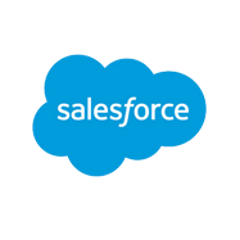#Force.com Maven Plugin
The Force.com Maven plugin enables you to generate Force.com JPA POJOs based on the objects already present in your Force.com organization.
##Configuring a Force.com Connection All plugin configurations require a Force.com connection name. We recommend using an environment variable for configuration. The environment variable name depends on the connection name. For more about connection names, see the Database.com Java SDK.
For example, if your connection name is connName, the associated environment variable must be FORCE_CONNNAME_URL.
On Mac or Linux:
export FORCE_CONNNAME_URL=https://login.salesforce.com\;user=username\;password=password
Note: Each semi-colon must be escaped with a backslash.
On Windows:
set FORCE_CONNNAME_URL=https://login.salesforce.com;user=username;password=password
##Basic Configuration The basic configuration requires a Force.com connection name that is referenced in the <connectionName> element in a pom.xml file.
<plugin>
<groupId>com.force</groupId>
<artifactId>maven-force-plugin</artifactId>
<version>22.0.5-BETA</version>
<configuration>
<all>true</all>
<connectionName>connname</connectionName>
</configuration>
</plugin>
Note: For an explanation of the <all> element, see the next configuration section.
##Configuring Force.com JPA Entities for Code Generation To configure POJO generation, add the following to your pom.xml file under the Force.com Maven plugin:
<executions>
<execution>
<id>generate-force-entities</id>
<goals>
<goal>codegen</goal>
</goals>
</execution>
</executions>
To generate POJOs for all objects in your organization, edit the <configuration> element to include <all>true</all>:
<configuration>
<all>true</all>
<connectionName>connname</connectionName>
</configuration>
To only include certain objects, use separate <include> elements instead:
<configuration>
<connectionName>connname</connectionName>
<includes>
<include>Account</include>
<include>Contact</include>
...
</includes>
</configuration>
By default, the plugin follows all object references and generates all the necessary files so that generated source will compile. For example, the standard Contact entity has a relationship field to the Account entity. If you generate a Java class for the Contact entity, the code generator generates both Contact and Account classes, as well as classes for any other relationships for Contact.
If you don't want to follow object references, set the <followReferences> element to false. You can use <include> elements for any references that you want to follow.
<configuration>
<connectionName>connname</connectionName>
<followReferences>false</followReferences>
<includes>
<include>Account</include>
<include>Contact</include>
...
</includes>
</configuration>
To exclude certain objects:
<configuration>
<connectionName>connname</connectionName>
<excludes>
<exclude>Opportunity</exclude>
<exclude>CustomObject__c</exclude>
...
</excludes>
</configuration>
This configuration generates classes for all objects excluding those listed in an <exclude> element.
Note: Your <configuration> element must include one of the following elements:
<all>true</all><includes><excludes>
The default directory for generated Java source files is src/main/java. You can override the default by defining a <destDir> element.
The default Java package name is com.<orgNameDenormalized>.model, where <orgNameDenormalized> is an identifier that is automatically created from your organization name. You can override the default by defining a <packageName> element.
<configuration>
<all>true</all>
<connectionName>connname</connectionName>
<destDir>${basedir}/src/main/java</destDir>
<packageName>com.mycompany.package.name</packageName>
</configuration>
Important Note: If you plan on creating Force.com schema through the JPA provider, you should only ever run JPA code generation once. Failing to do this might result in conflicts among your Java classes if you manually change the generated code and then run code generation again. If you plan on managing Force.com schema outside of the JPA provider, then you may run JPA code generation as many times as you like.
##Generating Force.com JPA Entities After you have configured your pom.xml file, generate JPE entities by running:
mvn force:codegen
###Generating Force.com JPA Entities on Heroku Heroku does not allow environment variables at build time. This means that your Force.com database credentials will not be available at build time for the JPA code generation to run. There are two options:
- Check in Force.com database credentials (not recommended)
- Pre-run the JPA code generation and check in the resulting source code files.
The latter requires an opt-in strategy for running code generation. Here's an example:
<profile>
<id>force-codegen</id>
<activation>
<property>
<name>forceCodeGen</name>
<value>true</value>
</property>
</activation>
<build>
<plugins>
<plugin>
<groupId>com.force</groupId>
<artifactId>maven-force-plugin</artifactId>
<version>22.0.5-BETA</version>
<executions>
<execution>
<id>generate-force-entities</id>
<goals>
<goal>codegen</goal>
</goals>
</execution>
</executions>
<configuration>
<all>true</all>
<connectionName>connname</connectionName>
<destDir>${basedir}/src/main/java</destDir>
<packageName>com.mycompany.package.name</packageName>
</configuration>
</plugin>
</plugins>
</build>
</profile>
Now you can opt-in to code generation with the following:
mvn clean install -DskipTests -DforceCodeGen
##Build The build requires Maven version 2.2.1 or higher.
mvn clean install -DskipTests
##Run Tests First mark the force-test-connection.properties file to be ignored by git:
git update-index --assume-unchanged src/test/resources/force-test-connection.properties
This follows our recommended best practices of not checking authentication credentials into source control.
Add Force.com database credentials to the force-test-connection.properties file and run:
mvn test
